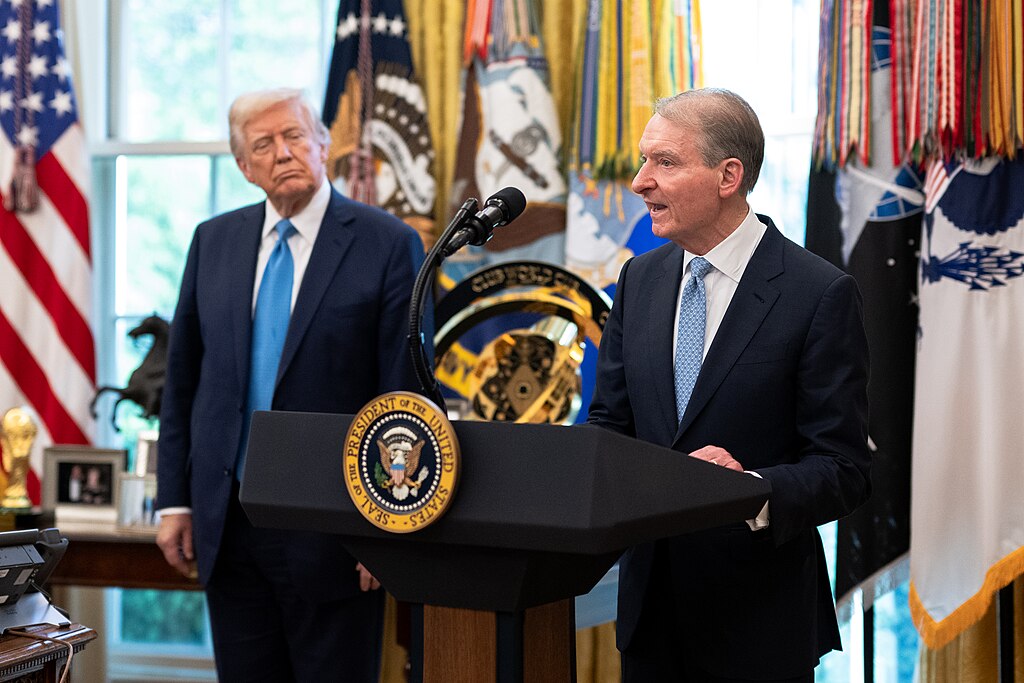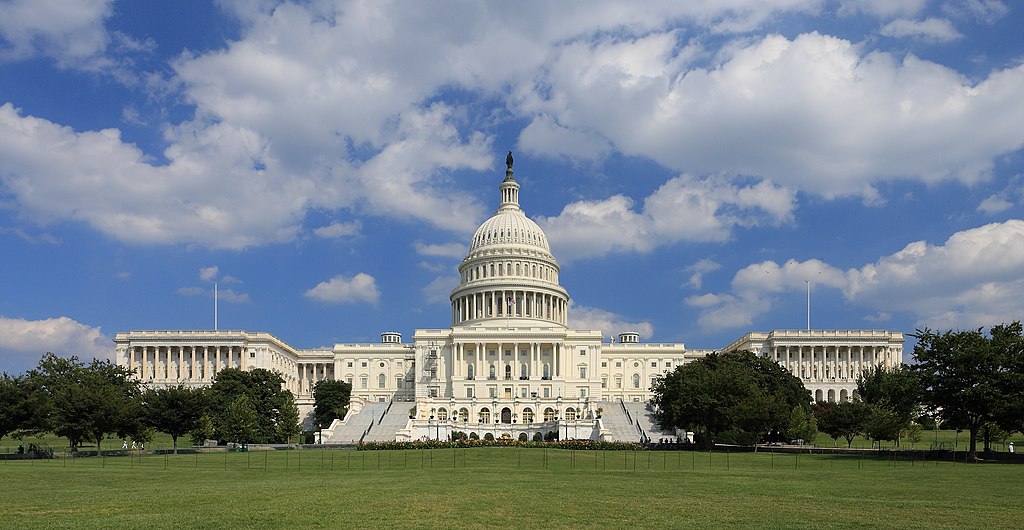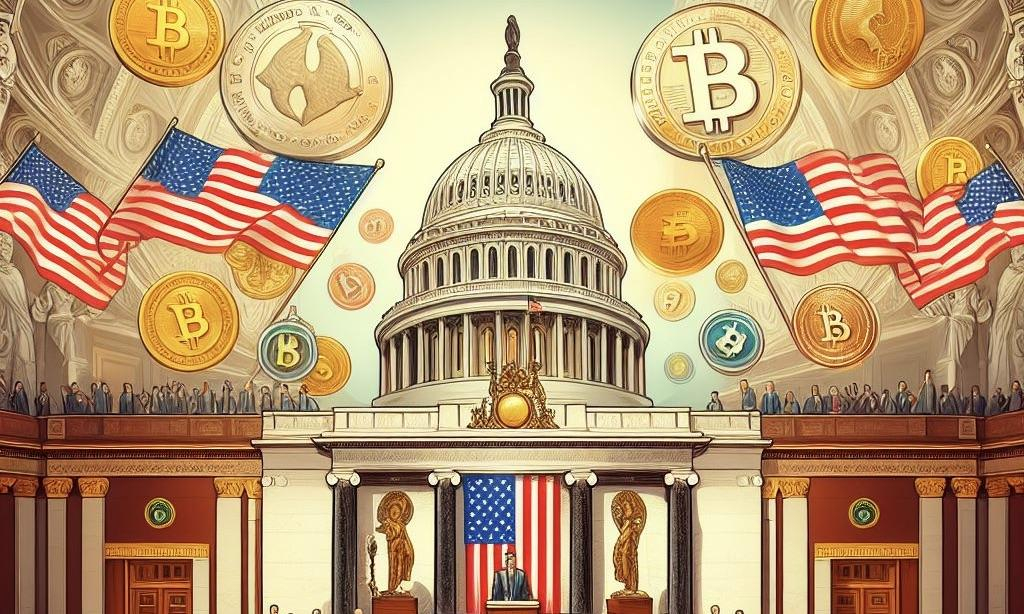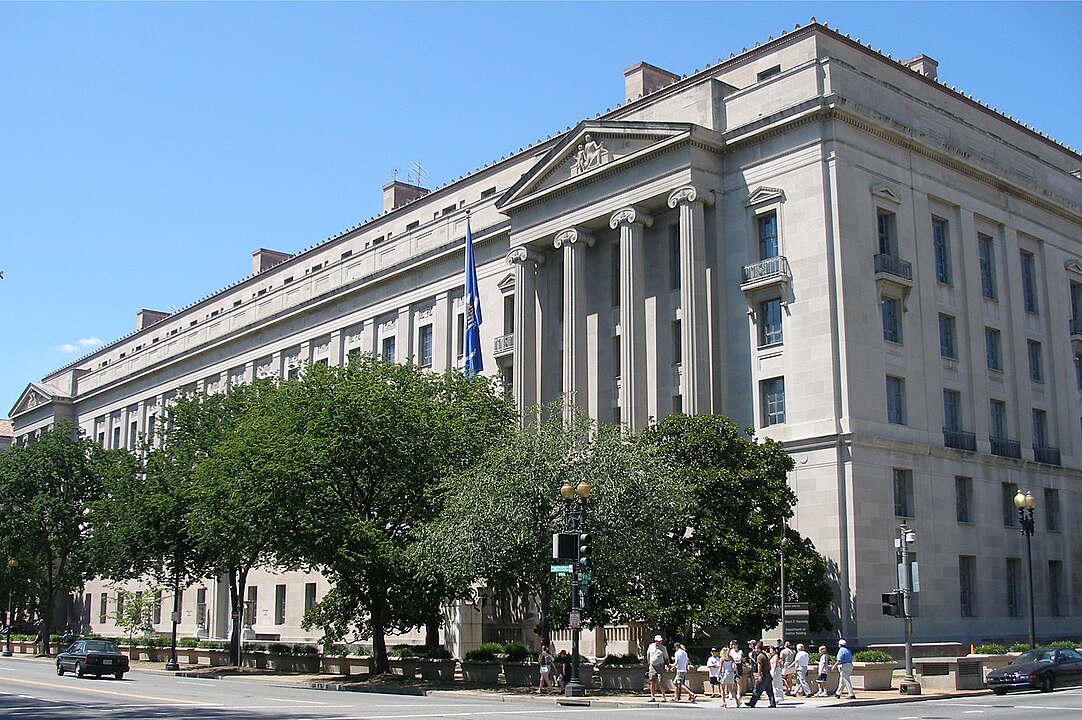President Donald Trump has officially signed the Guiding and Establishing National Innovation for U.S. Stablecoins (GENIUS) Act, marking a historic first step in establishing a clear regulatory framework for stablecoins in the United States. The legislation passed with strong bipartisan support—308-122 in the House and 68-30 in the Senate—and signals a major shift in Washington’s stance toward crypto.
At a White House signing ceremony attended by key industry leaders like Coinbase’s Brian Armstrong, Tether’s Paolo Ardoino, and Circle’s Jeremy Allaire, Trump praised the crypto sector for its resilience and growth, joking about the prior administration’s skepticism. “You were mocked and dismissed… but this signing is a massive validation,” he said.
The GENIUS Act provides clarity for stablecoin issuers, requiring full 1:1 reserve backing, monthly third-party audits, and strict compliance with anti-money laundering and know-your-customer (AML/KYC) regulations. The law empowers federal financial agencies to oversee stablecoin issuers and paves the way for broader crypto regulation.
Moody’s Ratings executive Rajeev Bamra emphasized that the act lays the groundwork, but success will depend on how effectively issuers implement transparency and governance standards. The law is expected to accelerate institutional adoption and reinforce U.S. dollar dominance through digital stablecoins, potentially boosting demand for U.S. Treasuries.
Trump, now branding himself as the “crypto president,” continues to champion a “golden age” for digital assets. Meanwhile, momentum builds behind the Digital Asset Market Clarity Act, which recently passed the House and awaits Senate action. Senate Banking Chair Tim Scott has committed to addressing the market structure bill by September 30.
With the GENIUS Act now law, the U.S. takes a significant step toward becoming the global leader in the regulated crypto economy.


























Comment 0